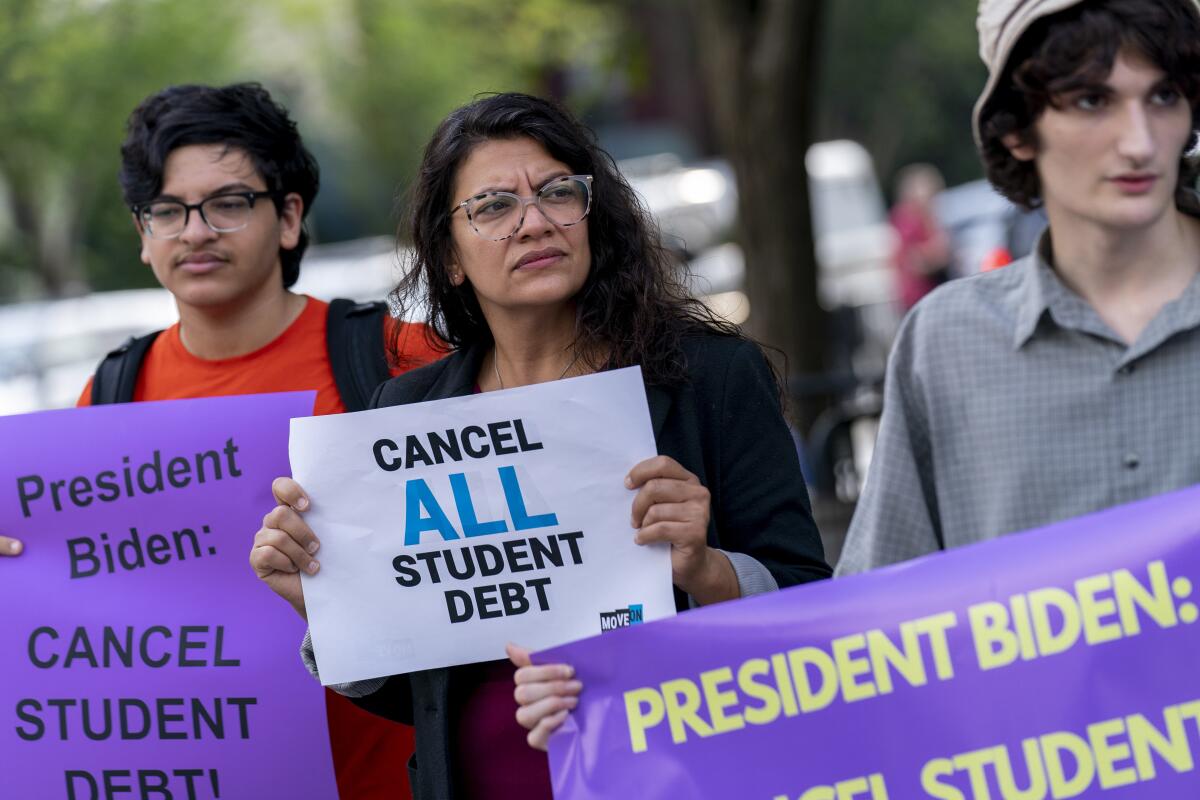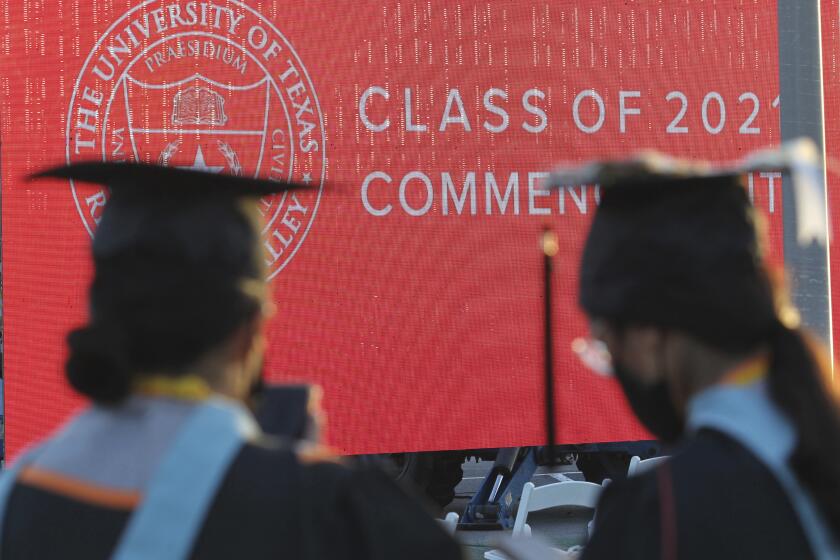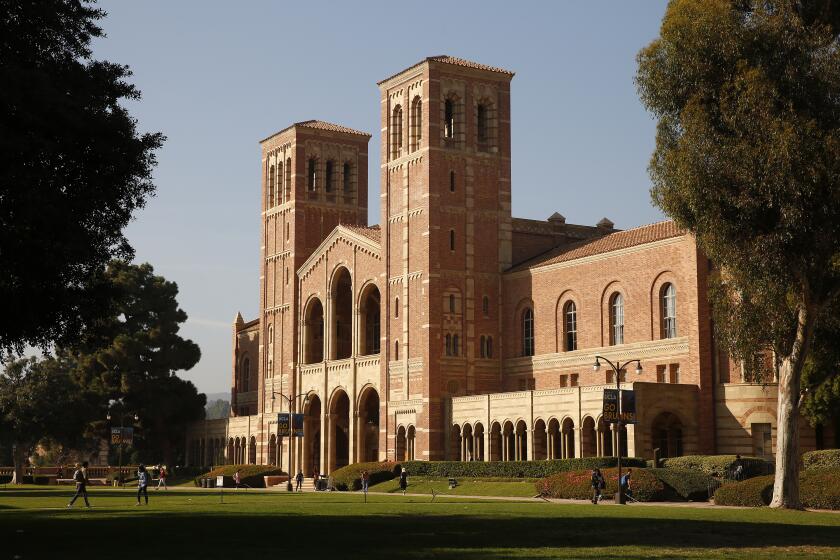Column: Is Bidenâs student debt forgiveness plan fair?

What is fair?
That is the question of the hour, as politicians and everyday Americans on both sides of the aisle debate the pros and cons of President Bidenâs plan to forgive student loan debt.
Is it fair to those who didnât go to college? Is it fair to those who âdid the right thingâ and paid off their loans? In short: Is it fair to me?
Opinion Columnist
LZ Granderson
LZ Granderson writes about culture, politics, sports and navigating life in America.
These are all good questions. As is the question of cost. The White House says the average cost is $24 billion a year. Considering weâre already nearly $31 trillion in debt and Jerome Powell, the Federal Reserve chairman, recently indicated that efforts to reduce inflation could bring âsome pain to households and businesses,â asking how are we going to pay for this is a pressing question.
But to me, the most important question is actually who is going to pay for this? As in, who pays for what society needs to remain whole and healthy and who pays when it falls short?
President Bidenâs loan forgiveness plan papered over some of the financial aid complexities. Hereâs how to figure out if your loan may be eligible.
I have a good friend by the name of Neil who is single, makes a good living and looks much younger than he actually is because he understood the importance of moisturizing early in life.
Anyway, my buddy Neil never had any children but for more than 40 years he has had a portion of his tax dollars pay for services he does not use, like public schools.
Now, is that fair to Neil and other taxpayers without children? Or is paying for education for the next generation necessary to be part of a healthy society? A society where someone in Arizona can see Kentuckians struggling in the wake of devastating floods and be thankful the Federal Emergency Management Agency is there to help those people â as opposed to being resentful that no disaster requires FEMA aid in Arizona?
The answer to âwho is going to pay for this?â is always âwe areâ â whether on the front end by addressing issues as a society or paying for the more expensive fallout from ignoring our problems. Time and time again, we are forced to face the reality that we are all in this together.
Certainly the expected cost of $300 billion for Bidenâs loan forgiveness plan is significant. But what of the effect of having 45 million borrowers grappling with $1.6 trillion in student loan debt? What of the societal and fiscal cost of those millions of Americans stymied in their futures?
But we donât think like that, we donât vote like that and we donât govern like that.
Who paid for the college education for GOP critics of Bidenâs student loan relief? The taxpayers, thatâs who.
That is why history is replete with billions spent on fixing problems that would have taken millions to prevent. Look no further than the homelessness crisis, which used to be âsomeone elseâs problemâ until it wasnât.
Much has been made about the likes of Rep. Marjorie Taylor Greene (R-Ga.) and the other Republicans who have rabidly denounced student loan cancellations. Turns out, they had their own far larger Paycheck Protection Program loans forgiven. We know they have no shame and their supporters are not deterred by their blatant hypocrisy. And thatâs how it has always been.
But for people genuinely asking about fairness or economic impact, there are issues to consider. If postsecondary education is the route to the middle class, is not college debt a sign of someone trying to pull themselves up? What is it about the struggles of these people that seem less worthy of assistance? Sure, we can find examples like Republican Texas Sen. Ted Cruzâs hypothetical slacker barista, who game the system, but we can also point to examples of businessmen who repeatedly file for bankruptcy and still get loans â but that doesnât mean thatâs the norm.
I was one of those individuals who graduated from college with student loan debt and went to bed hungry at times because of it. And when I was able to pay it off, I was happy. And Iâm happy a portion of my tax dollars may go to relieve someone of that burden.
Right now, millions of Americans, including the very poor, are drowning in student debt. I see this very much like a FEMA moment, and Iâm thankful government is stepping up to help. Call me crazy but isnât assisting those in need a principle of fairness as well?
@LZGranderson
More to Read
A cure for the common opinion
Get thought-provoking perspectives with our weekly newsletter.
You may occasionally receive promotional content from the Los Angeles Times.














